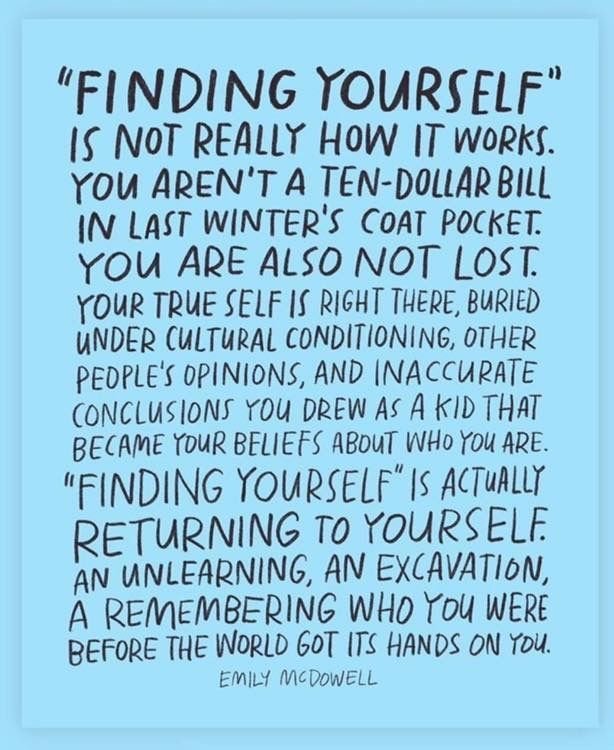You are not your personality.
This is not to denigrate your personality. I’m sure it’s quite delightful. (I know mine is.)
I attended my first workshop on the enneagram sometime in 2008. Lissa, the teacher (and my first psychotherapist), helped me identify my number, and I remember leaving with an incredible, intense sense of relief.
You mean I don’t have to be like this? This is a pattern, and I can opt out? I can be someone, something different?
Best news I’ve ever fucking heard.
I was in my late twenties and had been pretty miserable for a pretty long time. Since early adolescence, I had spent a lot of time either feeling like I had thick panes of glass between me and the rest of the world or like it was only a matter of time before the people in my life discovered what a fraud and a loser I was. I hated most things about myself, and when people praised something I did, or expressed wanting to spend time with me, I felt simultaneously pleased and grateful, and disgusted.
I credit learning the enneagram and a lot of therapy with unwinding a lot of these patterns. (Not to mention massive doses of unearned privilege and community support.)
It has been a long time since that workshop. I’m not done unwinding and understanding myself and my pattern. (I hope to never be done. Change is the only reliable constant.)
When I say you are not your personality, what I mean is that you are SO, SO, SO much more than that.
The personality is essentially a collection of very complicated defense mechanisms and survival strategies that we identify with over time. It develops early and can be very persistent. But it’s not permanent, and parts of it can become maladaptive as we age. (This is often what brings people into therapy—when there’s friction between coping skills established in childhood, or earlier,and their results in adulthood.) The enneagram of personality describes nine essential constellations of these mechanisms and strategies. It gives us a perspective from which to view ourselves and our personalities with tremendous, enormous compassion—and it offers ways for us to decide what parts of our personalities we want to keep, and what parts it may be time to let go of.
There are lots of paths to change or growth, and lots of tools out there. I’ve studied many—nowhere near all—of them. The enneagram, combined with basic mindfulness tools, remains the most powerful tool I’ve found. It’s not magic, and it’s not science. I often think of it as a map, a lens, a doorway—maybe most accurate is that it’s a kind of portal into a different way of knowing ourselves and others.
So if you aren’t your personality, what are you exactly, then?
My question in reply would be, what do you want to be?
Lately I’ve been exploring the notion of myself as a conduit rather than a container. A particular embodied aspect of the life force that enlivens the whole freaking universe. A tiny bit of conscious stardust in constant conversation with other tiny bits of conscious stardust. Sometimes I feel like I’m maybe a turtle in human form, or a plant, or maybe a sea creature.
I don’t know, dude. It doesn’t have to make sense.
My point is: what would freedom feel like to you? What parts of yourself are ready to die and be recycled? What parts feel like they’re absolutely central and foundational? Where are you fixed and where are you fluid?
It’s important to say, here, that I don’t know what we are, if we’re not our personalities. I just know that we are more.
